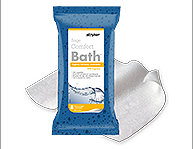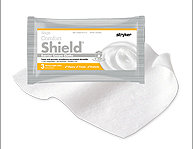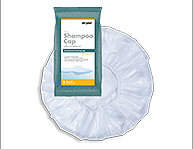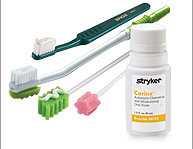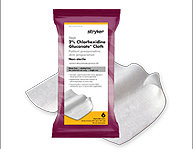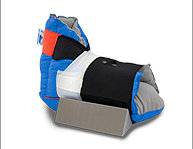29-Nov-2021
The Alzheimer’s Association estimates that 6.2 million Americans above the age of 65, or one in nine people, are living with Alzheimer’s dementia in 2021.1 Christine shares how she cares for her mom Liza, who’s been impacted by the disease, and the values her mother instilled in her that prepared her for this role.
Christine’s caregiving journey began over a decade ago when her mother Liza developed a dual diagnosis of dementia and early Alzheimer’s. Over time she’s seen how the disease has gradually robbed her mom of her memory, mobility, and speech.
“For the most part, mom is non-verbal, but we still manage to communicate with each other—something I am grateful for. Even a small amount of communication lets me know she’s still my mom. I know because small parts of her personality still shine through. Maybe it’s like the time when a child first communicates with a parent—how they coo and learn their syllables. It warms my heart in the same way when my mother manages to share even a few words,” says Christine.
Evolving roles
As her mother’s condition progresses, Christine’s role as a caregiver continues to evolve. She often thinks of how her mother was before the diagnosis. “It’s hard to see a disease take hold of someone you love and watch as it takes their independence away—especially because my mother has always been such a strong woman. She always stood up for what she believed in. And she taught me to do the same.”
As a young woman, Liza marched to rally for a local community center to be built, something that improved the quality of life for families with younger children. Today, the same community center offers various workshops like nutrition classes. She also was a fabulous cook, preparing family favorites like deep fried catfish, turkey and dressing, and BBQ ribs—the best ribs Christine has ever tasted.
Today Liza relies on Christine and her daughter Tenà for her care. This dynamic is not uncommon, in fact, it’s the norm.
83% of the help provided to older adults in the United States comes from family members, friends or unpaid caregivers.1
Half of these caregivers are providing help to someone with Alzheimer’s or another dementia.1
Caring for those who have always cared for us
Everyone has their own way of managing the tests and trials of caregiving. When Christine thinks about what it takes to be a caregiver, she shares that it requires a certain physical and mental tenacity. “Some days, when I know it’s going to be tough, all I can do is accept the challenge and try my best. Like when mom has no interest in taking her shower, she stiffens up like a two-by-four, arms clenched at her sides. It’s challenging.”
Despite it all, Christine still makes sure her mother is cared for. She takes pride in how Liza looks and feels, so she started searching for easier ways to shower her. Christine found Rinse-free Shampoo Caps while searching and they really enjoy the product. “Compared to washing mom’s hair the traditional way, with water and shampoo, using the shampoo caps makes hair washing so much easier, especially on days when my mom refuses a shower.” It allows Christine to give her mom a little extra love and care, allowing her to massage her mom’s scalp – something she knows makes it more relaxing for her. “When I glance down at her face, I see how much she enjoys it. Plus, it makes me feel good to give her that kind of quality care she deserves.”
It’s important to Christine to keep caring for her mother at home as long as she can. She feels that her mother is doing so well because she’s receiving care from loving family members.
“When I think about how I provide care for my mom, I suppose I’m following in her footsteps—doing what I believe in. That is to say, providing a home for her and a place where she feels familiar and comfortable. It feels good to provide for the woman who used to provide for us.”
Bringing quality care to your home
Everyone deserves quality care. And, as basic needs get less basic, home care products enable individuals and caregivers to provide quality care. If you're looking for simple ways to bathe, clean, and provide skin care and oral care for yourself or someone important to you, our Stryker homecare products can help. Each is designed to be effective and easy to use, as well as provide the comfort needed for care at home.
References
1. Alzheimer’s Association. ‘Facts and figures.’ Accessed 25 October 2021. https://www.alz.org/alzheimers-dementia/facts-figures
SYK CORP 2021-11-109


